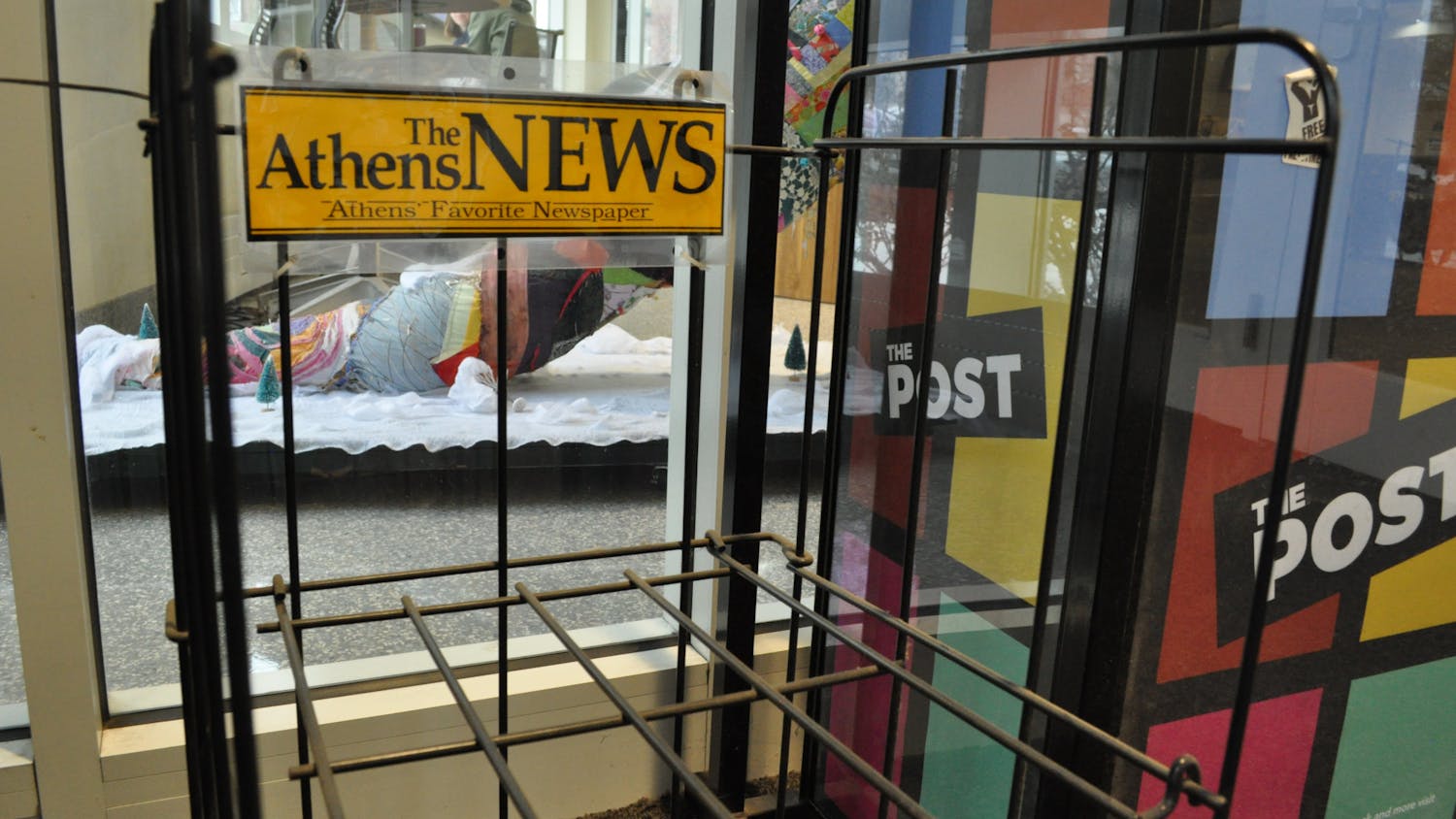Editor’s Note: The original story was redacted and updated. The article below contains further information about OU’s COVID-19 vaccine survey and students’ responses to it.
Ohio University’s COVID Operations released a survey Feb. 9 to gauge interest in receiving the COVID-19 vaccine among students, faculty and staff.
The survey will be used by OU to advocate for vaccine distribution. Some students, however, were not happy with how the survey was sent out due to how easily it was missed in their emails.
Students were sent the link to the survey in a weekly update from Gillian Ice, special assistant to the president for Public Health Operations.
Matthew Welday, a freshman studying undecided engineering, found out about the survey through his mom.
“The fact that that survey is used to gauge how many vaccines are needed or if the Athens or OU population wants the vaccine, I don’t think it was advertised nearly enough,” Welday said. “I think if it’s something that I should be finding out about, it either through an RA, teacher, through OU itself, not through my mom on a (non)-OU ran website of the parents talking about things.”
The survey included different options to gauge the range of people who would be responding. When respondents are asked if they would be interested in receiving the COVID-19 vaccine if it were offered to them, options include “yes,” “no,” “maybe” and “I have already received it.”
“Just yesterday, I was talking to someone, and I asked them if they had taken the survey, and they pretty much had the same instance with me where they got the email, clicked on it to send the notification away or whatever, but they didn’t actually see it,” Welday.
Some students said the email got lost with all of their other emails from the school.
Emma Gabriel, a sophomore studying music production and the recording industry, thinks the email should have been made to stick out more in students’ inboxes. She said OU emails students about such insignificant things that the email including the survey could have been overlooked.
“I don't read every single email I get if it doesn't appear to be important right off the bat,” Kaitlyn Cummings, a junior studying communications studies, said in an email. “This is important stuff, and it needs to be snappy and attention-grabbing or it's just going to get lost in all the other emails that students are getting in a 9-5 window any given day throughout the week.”
Due to how easily missed the survey was, Welday thinks it should have been mandatory, similar to the required alcohol and sexual assault training students take before coming to campus.
“If you don’t want to put your opinions on there, at least just make it necessary that way they get more responses that are more true to life and how the OU population actually feels as students versus just the people who either saw it or were told about it,” Welday said.
Kathryn Jewell, a sophomore studying middle school education, thinks that it would have been hard to have made the survey mandatory without sending it in its own separate email. If professors knew about the survey and reminded students, it would have been easier to make it mandatory, she said.
The survey is part of an effort by public universities in the Inter-University Council of Ohio to understand the interest of who would want to receive the vaccine. By understanding how many people are interested in the vaccine and what concerns they may have, COVID Operations is able to better advocate for the OU community, Ice said.
As of right now, 1,902 individuals have taken the survey, including 1,040 students, Ice said.
Those who completed the survey and indicated that they are interested in the vaccine will not be put down on a waitlist or in a scheduling system, Ice said. Similarly, completing the survey will not increase the chances of getting the vaccine before anyone else, she said.
“It is important for people to remember that the University does not have access to any vaccines for its students, faculty or staff,” Ice said in an email. “Currently in Ohio, only healthcare systems, local health departments and pharmacies are able to distribute the vaccine.”
Ohio Gov. Mike DeWine and the Ohio Department of Health are in charge of determining who is eligible for the vaccine and when. If OU is able to access the vaccine, it will have to follow the Ohio Department of Health rules about vaccine delivery and is preparing to do so, Ice said.
Jack Pepper, administrator at the Athens City-County Health Department, said OU has completed the necessary process to be a vaccinator.
“However the health department is prepared to continue to do mass vaccination clinics for all residents in Athens County, including those associated with Ohio University,” Pepper said in an email.
Pepper said vaccine availability is very limited, and only those identified in phases 1A and 1B are eligible to receive a vaccine.
“Until we are informed otherwise it is a safe bet that vaccine will remain scarce for the foreseeable future,” Pepper said in an email.






